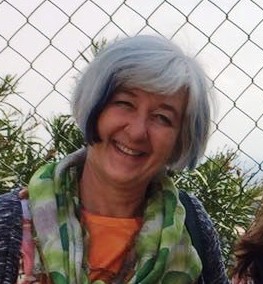Studying at the University of Verona
Here you can find information on the organisational aspects of the Programme, lecture timetables, learning activities and useful contact details for your time at the University, from enrolment to graduation.
Academic calendar
The academic calendar shows the deadlines and scheduled events that are relevant to students, teaching and technical-administrative staff of the University. Public holidays and University closures are also indicated. The academic year normally begins on 1 October each year and ends on 30 September of the following year.
Course calendar
The Academic Calendar sets out the degree programme lecture and exam timetables, as well as the relevant university closure dates..
| Period | From | To |
|---|---|---|
| I semestre | Oct 1, 2018 | Jan 12, 2019 |
| II semestre | Feb 18, 2019 | Jun 1, 2019 |
| Session | From | To |
|---|---|---|
| ESAMI LINGUE- sessione invernale | Jan 14, 2019 | Feb 16, 2019 |
| ESAMI LINGUE- sessione estiva | Jun 3, 2019 | Jul 27, 2019 |
| ESAMI LINGUE- sessione autunnale | Aug 26, 2019 | Sep 21, 2019 |
| Session | From | To |
|---|---|---|
| LAUREE LINGUE - sessione autunnale (a.a. 2017/18) | Nov 12, 2018 | Nov 17, 2018 |
| LAUREE LINGUE - sessione straordinaria (a.a. 2017/18) | Apr 1, 2019 | Apr 6, 2019 |
| LAUREE LINGUE - sessione estiva (a.a. 2018/19) | Jul 8, 2019 | Jul 13, 2019 |
| LAUREE LINGUE - sessione autunnale (a.a. 2018/19) | Nov 4, 2019 | Nov 9, 2019 |
| LAUREE LINGUE - sessione straordinaria (a.a. 2018/19) | Mar 30, 2020 | Apr 4, 2020 |
| Period | From | To |
|---|---|---|
| Festa di Ognissanti | Nov 1, 2018 | Nov 1, 2018 |
| Sospensione dell'attività didattica | Nov 2, 2018 | Nov 3, 2018 |
| Festa dell’Immacolata | Dec 8, 2018 | Dec 8, 2018 |
| VACANZE DI NATALE | Dec 22, 2018 | Jan 6, 2019 |
| VACANZE DI PASQUA | Apr 19, 2019 | Apr 23, 2019 |
| Sospensione dell'attività didattica | Apr 24, 2019 | Apr 24, 2019 |
| FESTA DELLA LIBERAZIONE | Apr 25, 2019 | Apr 25, 2019 |
| Festa del lavoro | May 1, 2019 | May 1, 2019 |
| Sospensione dell'attività didattica | May 20, 2019 | May 20, 2019 |
| Festa del Santo Patrono | May 21, 2019 | May 21, 2019 |
| VACANZE ESTIVE | Aug 13, 2019 | Aug 18, 2019 |
Exam calendar
Exam dates and rounds are managed by the relevant Foreign Languages and Literatures Teaching and Student Services Unit.
To view all the exam sessions available, please use the Exam dashboard on ESSE3.
If you forgot your login details or have problems logging in, please contact the relevant IT HelpDesk, or check the login details recovery web page.
Academic staff
 flavia.palma@univr.it
flavia.palma@univr.it
 sara.paolini@univr.it
sara.paolini@univr.it
 silvia.zollo@univr.it
silvia.zollo@univr.it
Study Plan
The Study Plan includes all modules, teaching and learning activities that each student will need to undertake during their time at the University.
Please select your Study Plan based on your enrollment year.
1° Year
| Modules | Credits | TAF | SSD |
|---|
1st foreign language2nd foreign language1st foreign literature 1 lm. Forms, genres and critical approaches2nd foreign literature 1 lm. Forms, genres and critical approaches2° Year activated in the A.Y. 2019/2020
| Modules | Credits | TAF | SSD |
|---|
1st or 2nd foreign literature 2 lm. Critical methodologies and textual interpretation1st foreign literature disciplinary area2nd foreign literature disciplinary area or textual and comparative studiesA philology to be chosen among the following (philology must be related to one of the chosen languages)History of the 1st or the 2nd foreign language| Modules | Credits | TAF | SSD |
|---|
1st foreign language2nd foreign language1st foreign literature 1 lm. Forms, genres and critical approaches2nd foreign literature 1 lm. Forms, genres and critical approaches| Modules | Credits | TAF | SSD |
|---|
1st or 2nd foreign literature 2 lm. Critical methodologies and textual interpretation1st foreign literature disciplinary area2nd foreign literature disciplinary area or textual and comparative studiesA philology to be chosen among the following (philology must be related to one of the chosen languages)History of the 1st or the 2nd foreign language| Modules | Credits | TAF | SSD |
|---|
Legend | Type of training activity (TTA)
TAF (Type of Educational Activity) All courses and activities are classified into different types of educational activities, indicated by a letter.
Textual and comparative studies (2019/2020)
Teaching code
4S006146
Teacher
Coordinator
Credits
6
Language
English
Scientific Disciplinary Sector (SSD)
L-FIL-LET/14 - CRITICAL COMPARATIVE LITERATURE
Period
II semestre (Lingue e letterature straniere) dal Feb 17, 2020 al May 30, 2020.
Learning outcomes
The learning outcomes of the class “Textual and com-parative studies” LM37 lead students to acquire a deep knowledge of the historical, cultural, and literary context in comparison and contrast related to the subject impart-ed; they aim to give useful information to comment, con-textualize text belonging to different literary genre, as well as to develop advanced analysis skills. They also aim at shaping students’ comparative skills, in terms of methodology, regarding mostly the interpretation of text, critical analysis, and the hermeneutic circle. The class is designed to focus on a systematic comparison rooted in its originally of both being monumentum and documen-tum. At the end of the course, the student must demon-strate that s/he has gained highly specialized knowledge, regarding the ability of understanding (knowledge and understanding); to have totally acquired a mastery of the research method associated with the specific field of investigation; finally, having the ability to integrate knowledge and manage complexity with a high degree of autonomy in broader (or interdisciplinary) contexts (communication skills).
Program
The course addresses the philosophical theme of the relationship between identity and repetition as represented in literary texts. The course is divided into independent but interconnected modules, each dedicated to an individual figure of repetition: rhythm, memory, habit, repetition compulsion, and discipline. For each figure, the approach to the literary texts will address a different facet of the issue. The theme of memory in Samuel Beckett will be considered in the light of the influence of Marcel Proust and of XIX century French spiritualist philosophers; Samuel Butler’s heterodox Lamarckian theories will be explored as reflected in his novel The Way of All Flesh; turn-of-the-century hygienism will be used as a valuable tool to interpret Italo Svevo’s La Coscienza di Zeno; Peter Sloterdijk’s philosophical anthropology will shed light on Georges Perec’s works and poetics.
Teaching methods:
Lectures and seminars. ATTENTION: students who will not attend classes should contact the lecturer before the end of the course to discuss an individual program.
| Author | Title | Publishing house | Year | ISBN | Notes |
|---|---|---|---|---|---|
| Dispensa | dispensa | 2020 | Verrà fornita agli studenti una dispensa in formato digitale. | ||
| Marcel Proust | Du côté de chez Swann | Folio Classique | 2000 | Tr. italiana: Proust, Marcel. (1983) Alla ricerca del tempo perduto. Vol I. Milano: Mondadori. Engl: Proust, Marcel. (2004) Swann's Way. London: Penguin). (Solo la sezione “Combray”) | |
| Samuel Beckett | Krapp's Last Tape | qualsiasi edizione in inglese / any English edition | 1958 | ||
| Italo Svevo | La Coscienza di Zeno | Mondadori | 2006 | Solo le parti: 1. Prefazione, 2. Preambolo, 3. Il Fumo, 8. Psico-Analisi. | |
| Georges Perec | La vie mode d'emploi | Hachette | 2013 | Engl: Perec Georges. (2008) Life A User's Manual. London: Vintage. Tr. Italiana: Perec, Georges. (1997) La vita istruzioni per l'uso. Milano: Rizzoli. (Estratti. I capitoli da leggere verranno indicati durante il corso). | |
| Samuel Butler | The Way of All Flesh | Penguin | 1986 |
Examination Methods
The aural examination will assess the knowledge of the topics discussed in class, the ability to analyse literary texts and to offer personal interpretations. Students will be given the opportunity to do presentations in class, which will contribute to the final mark by 20% and will allow for a reduction of the required readings.
Type D and Type F activities
To discover all the teaching activities accredited by the foreign teaching college click here
Career prospects
Module/Programme news
News for students
There you will find information, resources and services useful during your time at the University (Student’s exam record, your study plan on ESSE3, Distance Learning courses, university email account, office forms, administrative procedures, etc.). You can log into MyUnivr with your GIA login details: only in this way will you be able to receive notification of all the notices from your teachers and your secretariat via email and soon also via the Univr app.
Student login and resources
Gestione carriere
Attività accreditate D/F
Calendario didattico dettagliato
Competenze linguistiche (prima e seconda lingua)
Language skills
Compilazione del piano didattico
Corso di Lingua portoghese
Double degree
The University of Verona, through a network of agreements with foreign universities, offers international courses that enable students to gain a Double/Joint degree at the time of graduation. Indeed, students enrolled in a Double/Joint degree programme will be able to obtain both the degree of the University of Verona and the degree issued by the Partner University abroad - where they are expected to attend part of the programme -, in the time it normally takes to gain a common Master’s degree. The institutions concerned shall ensure that both degrees are recognised in the two countries.
Places on these programmes are limited, and admissions and any applicable grants are subject to applicants being selected in a specific Call for applications.
The latest Call for applications for Double/Joint Degrees at the University of Verona is available now!
Documents
| Title | Info File |
|---|---|
|
|
pdf, it, 316 KB, 28/09/23 |
|
|
octet-stream, it, 22 KB, 28/09/23 |
|
|
pdf, it, 520 KB, 28/09/23 |
Erasmus+ e altre esperienze all'estero
Linguistic training CLA
Percorso verso l'insegnamento
Una delle possibilità per gli studenti dopo il conseguimento della laurea magistrale è l’insegnamento nella scuola: l’Università degli Studi di Verona è tra gli enti accreditati dal MIUR per l'erogazione di corsi di formazione e aggiornamento e qualificazione delle competenze per insegnanti. Il percorso per diventare insegnante è legato alle seguenti condizioni:
1a CONDIZIONE
Il possesso della laurea magistrale o a ciclo unico, oppure diploma di II livello dell’alta formazione artistica, musicale e coreutica, oppure titolo equipollente o equiparato, coerente con le classi di concorso vigenti alla data di indizione del concorso; il futuro insegnante dovrà, inoltre, soddisfare i requisiti di accesso previsti per la classe di concorso scelta.
Per le classi di concorso:
- A-24 (Lingue e culture straniere negli istituti di istruzione secondaria di II grado) e
- A-25 (Lingua inglese e seconda lingua comunitaria nella scuola secondaria I primo grado)
sono previsti i seguenti requisiti di accesso (vedi l’allegato A al DM 259/2017):
1) 18 CFU nei settori scientifico disciplinari L-LIN/01 e/o L-LIN/02
2) 36 CFU della lingua di specializzazione scelta
3) 24 CFU della letteratura relativa alla lingua di specializzazione scelta.
I requisiti specifici delle classi di concorso A-24 e A-25 possono essere soddisfatti nell’ambito dei piani didattici o negli esami a scelta libera superati all’interno del percorso di studio universitario (Laurea Triennale e Magistrale), oppure attraverso l’iscrizione a corsi singoli.
Il requisito relativo alla lingua di specializzazione (2) è soddisfatto (sulla base degli esami previsti nel piano didattico) nell’ambito del percorso formativo che comprende una laurea triennale dell’area di Lingue e Letterature Straniere, seguita da una laurea magistrale della medesima area (qualsiasi Corso di Laurea triennale e magistrale dell’area di Lingue e Letterature Straniere).
Per verificare i requisiti relativi alla letteratura di specializzazione (3) e agli insegnamenti di linguistica che appartengono ai settori scientifico-disciplinari di L-LIN/01 e L-LIN/02 (1), invece, gli studenti sono invitati a consultare il proprio piano didattico per verificare il numero di CFU previsti nel percorso formativo.
2a CONDIZIONE
Il possesso dei 24 crediti formativi universitari o accademici acquisiti in forma curricolare, aggiuntiva o extra curricolare nelle discipline antropo-psico-pedagogiche e nelle metodologie e tecnologie didattiche, garantendo comunque il possesso di almeno 6 CFU conseguiti in ciascuno di almeno tre dei seguenti quattro ambiti disciplinari:
1) pedagogia;
2) pedagogia speciale e didattica dell’inclusione;
3) psicologia; antropologia;
4) metodologie e tecnologie didattiche.
Percorso formativo 24 CFU
Consente di acquisire uno dei requisiti di partecipazione al concorso nazionale per l’accesso al “percorso annuale di formazione iniziale e prova” su posti comuni e di sostegno, ai sensi del D.Lgs 13 aprile 2017, n. 59 come modificato dalla legge n.145 del 30/12/2018 (c. dal 792 al 796).
I settori scientifico disciplinari, gli obiettivi formativi, le modalità organizzative e gli eventuali costi sono stati stabiliti dal D.M. 10 agosto 2017, n. 616.
Per sapere quali insegnamenti della propria carriera vengano automaticamente riconosciuti si rimanda alla pagina del sito di Ateneo dedicata al percorso formativo 24 CFU.
Si consiglia agli interessati di consultare la pagina https://www.univr.it/it/i-nostri-servizi/futuri-studenti/post-laurea/formazione-degli-insegnanti in costante aggiornamento, in particolare sezione documenti in cui vengono pubblicati formulari, programmi degli insegnamenti ed elenchi di studenti ammessi.
Tra gli insegnamenti automaticamente riconosciuti nell’ambito dei 24 CFU vi sono: Insegnamento delle lingue (L-LIN/02) e Apprendimento delle lingue (L-LIN/02), previsti nel piano didattico del curriculum Linguistico-didattico del CdS di Lingue e letterature straniere (LLS).
Gli studenti immatricolati nel CdS di LLS che hanno scelto i curricula Letterario e Artistico possono comunque inserire tali insegnamenti nel piano di studi come crediti D (a scelta libera).
Gli studenti immatricolati negli altri CdS triennali del Dipartimento di Lingue e letterature straniere (Lingue e culture per il turismo e il commercio internazionale; Lingue e culture per l’editoria [a esaurimento]; Lingue e letterature per l’editoria e i media digitali) posso inserire tali insegnamenti nella propria carriera solo su eventuale autorizzazione preventiva del Presidente del Collegio Didattico (mediante Help desk).
Il soddisfacimento della 1a e 2a condizione è requisito obbligatorio per partecipare ai concorsi di abilitazione o specifici percorsi post lauream previsti dal Ministero.
Graduation
Stage e tirocini
Le attività di stage sono finalizzate a far acquisire allo studente una conoscenza diretta in settori di particolare interesse per l’inserimento nel mondo del lavoro e per l’acquisizione di abilità professionali specifiche.
Le attività di stage sono svolte sotto la diretta responsabilità di un singolo docente presso studi professionali, enti della pubblica amministrazione, aziende accreditate dall’Ateneo veronese.
I crediti maturati in seguito ad attività di stage saranno attribuiti secondo quanto disposto nel dettaglio dal “Regolamento d’Ateneo per il riconoscimento dei crediti maturati negli stage universitari” vigente.
- Tutte le informazioni in merito agli stage per futuri studenti sono disponibili alla pagina Stage e tirocini.
- Tutte le informazioni in merito agli stage per studenti iscritti sono pubblicate in MyUnivr - come fare per - stage e tirocini.
- Tutte le informazioni in merito agli stage per le aziende sono disponili alla pagina Stage e tirocini per azienze.
Ulteriori informazioni al seguente link https://www.univr.it/it/i-nostri-servizi/gestione-carriere-studenti-lingue-e-letterature-straniere/stage-e-tirocini-lingue-e-letterature-straniere

 +39 045802 8409
+39 045802 8409


























